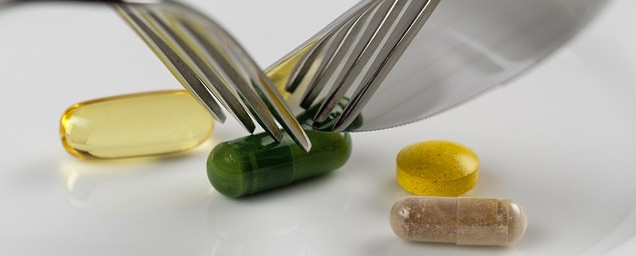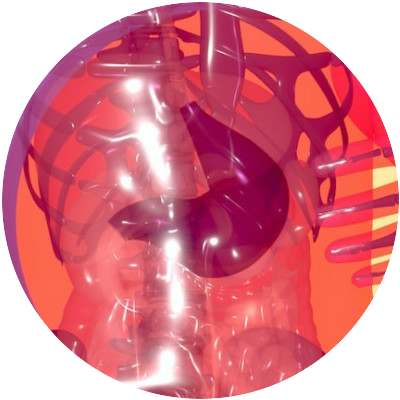 These days it seems that everyone over 50 is on a quest for good gut health, eating more yogurt, taking more supplements, and even buying pricey probiotics from the refrigerated section of Whole Foods and other upscale grocers. This, of course, is a good thing by almost any account. Most of the attention has been garnered by prebiotics and probiotics, terms that are at least somewhat familiar to most of us. But, there’s a lesser-known, but certainly not less effective, player on the gut health scene–and that player is postbiotics.
These days it seems that everyone over 50 is on a quest for good gut health, eating more yogurt, taking more supplements, and even buying pricey probiotics from the refrigerated section of Whole Foods and other upscale grocers. This, of course, is a good thing by almost any account. Most of the attention has been garnered by prebiotics and probiotics, terms that are at least somewhat familiar to most of us. But, there’s a lesser-known, but certainly not less effective, player on the gut health scene–and that player is postbiotics.
Postbiotics have quickly gained increased recognition and may actually be the heretofore unheralded star in the gut health world. These bioactive compounds (that is, compounds that have an effect on living organisms, like tissues or cells) are produced as by-products of the fermentation process carried out by probiotics. Postbiotics offer a range of health benefits for our gut and for our overall well-being. In this short article, we’ll give you everything you need to know about postbiotics and their potential health benefits.
Understanding Postbiotics: The Bioactive Powerhouses
Defining Postbiotics
Postbiotics can be defined as the beneficial waste products generated by probiotic bacteria during the fermentation process. Yuck! Yes, probiotics eat prebiotics and during this fermentation process, they produce postbiotics as by-products. Remember, probiotics are the beneficial live bacteria that colonize and live in our gut, and prebiotics are their food source.
The term ‘postbiotics’ encompasses a wide range of beneficial compounds, like short-chain fatty acids, cell membrane fragments, enzymes, vitamins, amino acids, and more. All of these substances play a crucial role in supporting our overall good health–not just our gut health.
Unleashing the Power of Postbiotics
Postbiotics offer a myriad of health benefits, some of which are similar to what we associate with probiotics and prebiotics. But postbiotics can go even further. These benefits include immune system support, gut and digestive health, and even mood and brain function enhancement. Let’s explore some of the key components of postbiotics and specifically how they contribute to our overall well-being. 
Short-Chain Fatty Acids: The Gut Guardians
Think of short-chain fatty acids (SCFAs) as protectors of the gut, and they probably are the most researched type of postbiotics. Short-Chain fatty acids are produced through the fermentation of carbohydrates (again, by probiotic bacteria). They can play a crucial role in gut health by serving as an energy source for certain colon cells. But just as important, SCFAs can reduce inflammation, strengthen and fortify the intestinal barrier. This helps prevent leaky gut, and can even help improve the quality of sleep.
Neurotransmitters: Nurturing The Brain-Gut Connection
Postbiotics can influence our mood, relaxation, sleep, and even our memory, through the production of neurotransmitters. Neurotransmitters send chemical messages from cell to cell, and our bodies couldn’t even function without them. The fermentation of certain strains of probiotics (resulting in postbiotics) produces neurotransmitters, which have been linked to modulating mood, reducing stress, and improving our overall cognitive function. This contributes to the intricate gut-brain axis and highlights the importance of a balanced gut microbiome for mental well-being, not just gut health.
Vitamins and Nutrients: A Microbial Nutritional Boost
One surprising facet of postbiotics, is that they contribute to the production of several vitamins and nutrients. For example, the (much mentioned) fermentation process can produce B vitamins, B9, vitamin K and some amino acids. Of course, these compounds are well-known as support for our overall health.
 Other Beneficial Compounds: Unveiling Hidden Powers
Other Beneficial Compounds: Unveiling Hidden Powers
Postbiotics also include several lesser-known compounds that have been linked to even more potential health benefits, like maintaining healthy blood sugar levels, weight loss, prevention of diarrhea, and reducing the severity of certain allergies. More Benefits of Postbiotics.
Conclusion
To be sure, there is less research and information about postbiotics, as opposed to pre- or probiotics, but don’t sleep on them. Or better yet, maybe we should sleep on them. Postbiotics are beneficial compounds that can have significant health benefits, even beyond just gut health. The list of benefits is extensive and will likely grow as more attention is pointed at this unheralded player in the world of good gut health–and good health overall.
As always, we invite your feedback, comments, and questions. Please feel free to share your thoughts below.
Just wanted to drop a quick note to say how much I enjoyed your article on postbiotics and gut health. Seriously, it’s like you opened a door to a whole new world of wellness I never knew existed!
I mean, we’ve all heard about probiotics and prebiotics, but postbiotics? That’s some next-level stuff. Your breakdown of how they’re the unsung heroes produced during fermentation is mind-blowing. Plus, the fact that they can impact everything from our mood to vitamins – that’s pretty wild.
Thanks for making health topics so engaging and for putting postbiotics on my radar. Keep up the awesome work!
Cheers
Roopesh
Hi, i was informed and educated about post biotics and I much better understand the digestion process now and the importance of postbiotics in diet and digestion. Thank you so much for this information. I will share it with my family and also return to your website for more relevant information.